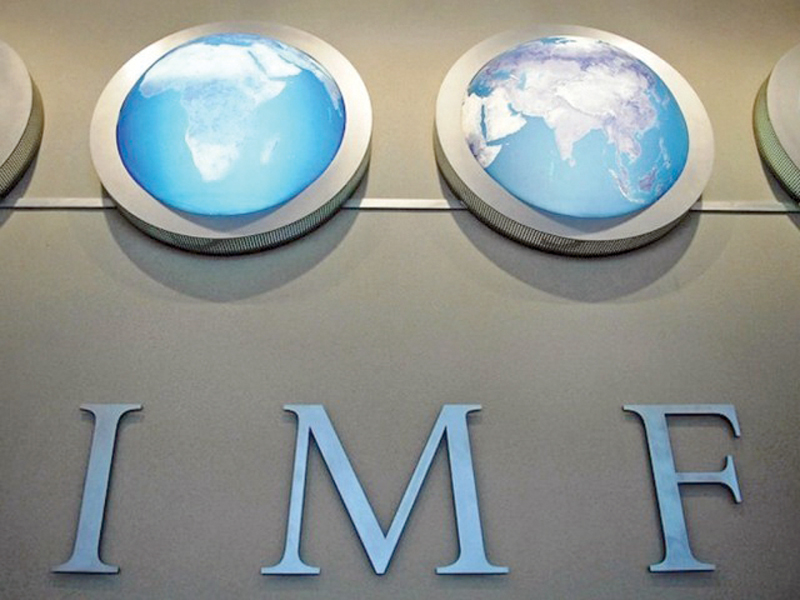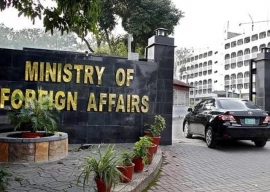
Pakistan and International Monetary Fund (IMF) are set to open talks to review performance of the economy during the last quarter of previous fiscal year as Islamabad is likely to win the fifth loan tranche of $550 million after meeting most of the conditions.
The two sides are scheduled to meet from August 6 to 14 in Dubai, United Arab Emirates, to review the performance of the economy in the last quarter (April-June) of the previous fiscal year, said officials in the Ministry of Finance.

Both sides will also discuss the performance criteria and indicative targets for the first quarter of the new fiscal year, they added.
While the performance in the last quarter largely remained on track on back of certain out of book adjustments, the sources said the IMF is likely to flag the issue of backpedaling on some budgetary measures that could affect the new fiscal year’s budget deficit target.
They added the pace of withdrawing Statutory Regulatory Orders (SROs) and huge increase in backlog of Public Sector Development Programme (PSDP) are likely to be highlighted by the IMF.
The officials said the government has performed well on most of the targets but lagged behind on its commitment to improve the situation in the energy sector. It also could not meet the condition of introducing amendments to the State Bank of Pakistan (SBP) Act aimed at strengthening the administrative authority of the central bank.
The structural benchmark on hiring a financial adviser for Pakistan International Airlines (PIA) was met with a delay of three weeks. Similarly, delay in restructuring the National Electric Power Regulatory Authority (Nepra) was also a cause for concern for the IMF. The IMF has already given fresh dates on amending the SBP Act and filling the vacancies in the Nepra Board.
The talks were originally scheduled for July but were delayed after the IMF desired to see a clear roadmap that deals with outstanding issues in the areas of energy and privatisation, said the officials.

Ministry of Finance’s spokesman Rana Assad Amin was not available for comments. A successful completion of the fourth review and subsequent approval of the IMF’s Board will lead to the release of the fifth loan tranche of roughly $550 million.
One of the major conditions for the last quarter was to increase the net international reserves of the SBP to $1.8 billion. The net reserves are calculated by excluding all reserves related liabilities. The gross SBP reserves as of July 25 stood at $9.275 billion including the borrowings from China and commercial banks.
When contacted the SBP refused to divulge whether or not it achieved targets on net foreign currency reserves and net domestic assets. “The SBP does not deem it appropriate to share information prior to discussions with the IMF,” said the central bank’s spokesman Khubaib Usmani, in his brief reply.
Under the agreement, the IMF has also placed ceiling on net domestic assets at Rs2.324 trillion. The central bank had missed the third quarter’s NDA target.
According to yet another important performance criterion, the federal government was bound to restrict the budget deficit to Rs1.464 trillion by end June. The sources said the government was expected to achieve this threshold. However, there was an issue over the actual tax collection by the Federal Board of Revenue (FBR) in the last fiscal year.
The FBR has claimed that it collected Rs2.266 trillion in taxes while the SBP was not confirming this figure, they added.
In an agreement with the IMF, the government was required to undertake a diagnostic study of the power sector’s regulatory framework and prepare an interim report by the end of April. The two sides would discuss the report in the fourth review meetings.
Sources said the IMF was concerned about delay in restructuring of the power sector, particularly Nepra’s refusal to accept the government’s directive to increase the ceiling of transmission and distribution losses, also called line losses.
The delay in restructuring may also mar the privatisation plan for power distribution companies. Without a truly independent and effective Nepra, issues that would crop up after the sell-off like tariff determination and regulatory oversight could not be addressed, they added.
Published in The Express Tribune, August 5th,2014.
COMMENTS (7)
Comments are moderated and generally will be posted if they are on-topic and not abusive.
For more information, please see our Comments FAQ










































In my view, IMF should seek to place tighter controls to ensure the utilisation of funds. I am sure this tranche (or atleast a portion) of it would land in the pockets of corrupt politicians.
Best of luck to beloved Pakistan!. You're a nation with good people, but handled by corrupt politicians.
This happens when you keep spending and keep changing policies, trying to have one of the largest militaries, no investment in energy for decades, wont make dams, and wont invest in education.
Sorry but you need money to keep country moving, loans are necessary, only if there is some stability and some development. Once economic engine starts these loans become easy to pay, etc.
What ever happened to standing on our own feet ?
Heady times..... when you can call securing loan as "win"! I am sure that is how the government would like to consider it..
Good luck future generation of Pakistan. You have no idea how much debt you already have on your heads before you are even born.
Thank you, IMF
Thanks IMF and PML-N!!!
I know that its very difficult for us to get rid of our problems and yes we need money. Poor individual's require support until they are able to stand by themselves. I think it would take another ten years but nevertheless, i m happy that there is someone out there who bails us out in tough times. Thank you